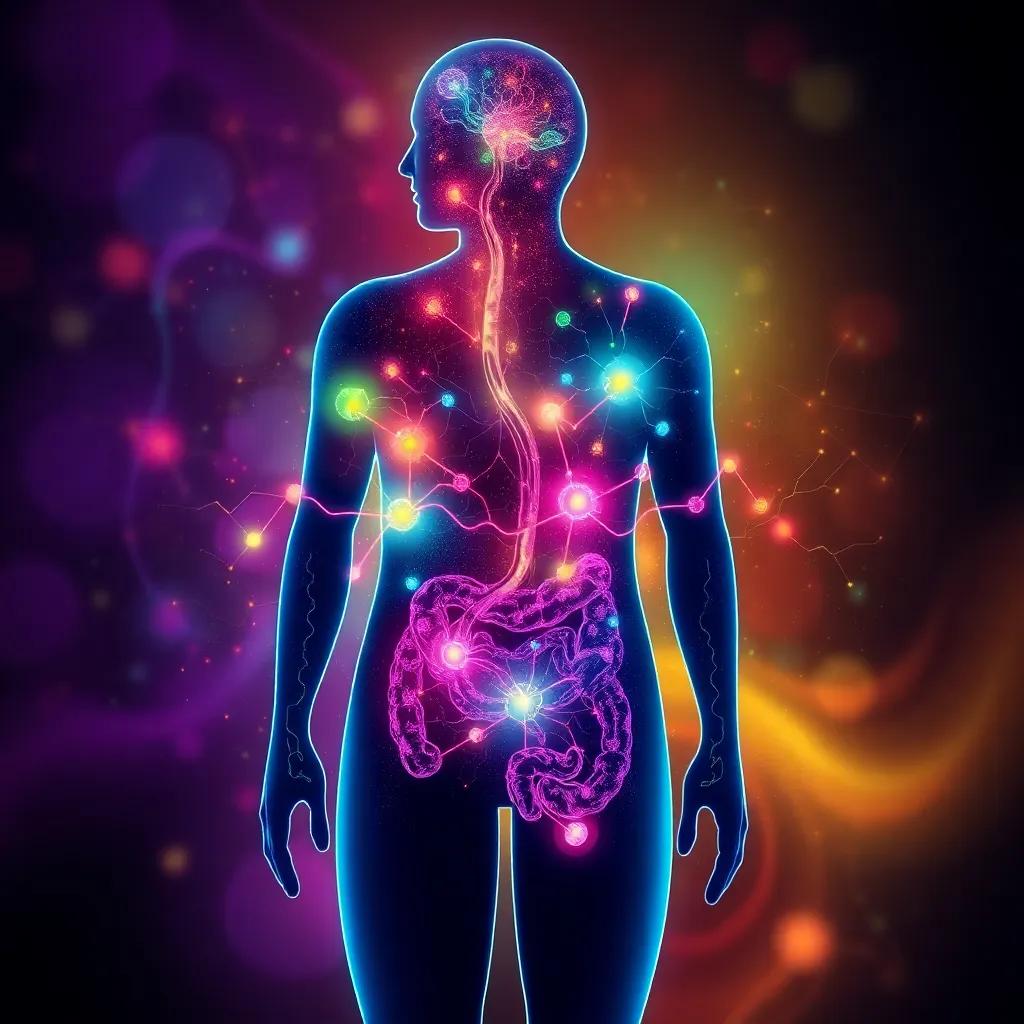Explore the profound impact of the human microbiome on mental health, immune function, and chronic disease prevention, with insights from the latest research and expert opinions.
Discover how the trillions of bacteria in your gut are shaping your mental and physical health, and what you can do to nurture a balanced microbiome.
The Gut-Brain Axis: A Two-Way Communication Highway
The gut-brain axis is a complex communication network that links the emotional and cognitive centers of the brain with peripheral intestinal functions. Recent studies, such as those published in Nature Microbiology
, have shown that gut bacteria produce neurotransmitters like serotonin and dopamine, which play crucial roles in mood regulation. Dr. Jane Foster, a neuroscientist at McMaster University, explains, Our gut microbiota can influence brain chemistry and behavior, suggesting a direct link between gut health and mental health.
Probiotics, Prebiotics, and Fermented Foods: Allies of the Microbiome
Incorporating probiotics, prebiotics, and fermented foods into your diet can significantly enhance microbiome diversity. Probiotics, found in yogurt and kefir, introduce beneficial bacteria, while prebiotics, present in foods like garlic and onions, feed these bacteria. Fermented foods, such as kimchi and sauerkraut, offer a double benefit by providing both probiotics and prebiotics. A 2021 study in Cell
highlighted that a diet rich in these foods can reduce inflammation and improve gut barrier function.
Dysbiosis and Its Role in Chronic Diseases
Dysbiosis, or microbial imbalance, has been linked to a range of conditions, including depression, anxiety, and autoimmune diseases. Research from the University of California, Los Angeles (UCLA) indicates that individuals with depression often have a less diverse gut microbiome. Restoring microbial balance through dietary changes or fecal microbiota transplantation (FMT) could offer new therapeutic avenues,
says Dr. Emeran Mayer, a gastroenterologist at UCLA.
Practical Tips for Improving Gut Health
To maintain a healthy microbiome, consider the following tips:
- Eat a diverse range of foods, particularly plant-based ones.
- Limit the use of antibiotics, which can disrupt microbial balance.
- Incorporate fermented foods and prebiotic-rich foods into your diet.
- Manage stress through mindfulness and regular exercise, as stress can negatively impact gut health.
Emerging Therapies: The Promise of Fecal Microbiota Transplantation
Fecal microbiota transplantation (FMT) is an emerging therapy that involves transferring stool from a healthy donor to a patient to restore microbial balance. While primarily used to treat recurrent Clostridioides difficile infections, FMT is being explored for other conditions, including inflammatory bowel disease (IBD) and even neurological disorders. A 2020 review in The Lancet Gastroenterology & Hepatology
noted, FMT holds promise, but more research is needed to understand its long-term effects and potential risks.




